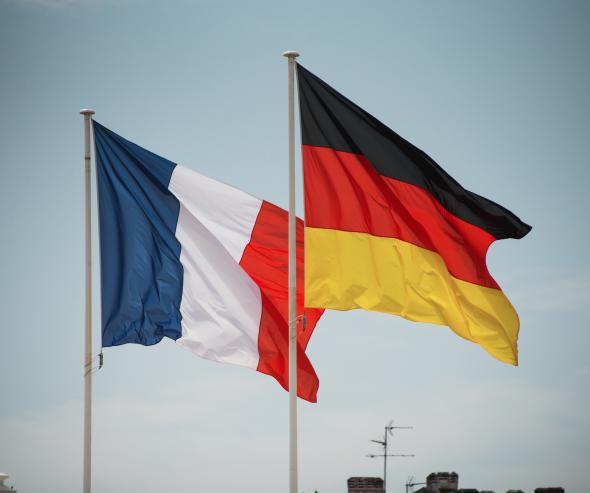9th Franco-German Competition Day

Background
The Autorité de la concurrence and its German counterpart, the Bundeskartellamt, met in Paris on 14 and 15 November for the 9th Franco-German Competition Day. This day is an opportunity to strengthen the close cooperation between the two institutions through bilateral exchanges and the organisation of a public event.
This year's discussions focused on the challenges associated with the rise of generative artificial intelligence and the issue of value sharing in the distribution sector. These exchanges were complemented by a Policy Talk on European competition policy.
The ninth Franco-German Competition Day was held in Paris on 15 November 2024, bringing together the Autorité de la concurrence and the Bundeskartellamt. This biennial meeting, organised alternately by the two competition authorities, provides a platform for exchanging views on shared topics of interest. This year, the focus was on generative artificial intelligence and competition issues in the retail sector, complemented with a European Policy Talk.
Benoît Coeuré, President of the Autorité de la concurrence: “The Franco-German Competition Day is a unique opportunity to address common challenges, and today’s compelling discussions reflect the importance of our dialogue. The strong partnership between the Autorité de la concurrence and the Bundeskartellamt is a cornerstone of effective competition enforcement in Europe, and it is more important than ever at a time when Europe faces pressing challenges. I am proud of the enduring trust and collaboration that define our relationship.”
Andreas Mundt, President of the Bundeskartellamt: “The Franco-German Competition Day reflects the excellent cooperation that has existed between our authorities for many years. The discussions have once again shown that both competition authorities deal with very similar issues in their daily work. Through dialogue and exchange we can improve our understanding of important competition issues and make it easier to find solutions.”
The conference, held before a 100-plus audience of French and German competition experts (including lawyers, judges, academics, regulators, ministry officials, company and trade association representatives), provided an opportunity for high-level panellists to exchange views on some key trends in these sectors.
The discussions included two roundtables on the sharing of value in the retail sector in France and Germany, and on the competitive challenges of generative artificial intelligence, complemented with a European Policy Talk.
Roundtable on generative artificial intelligence
The first roundtable, adopting a forward-looking perspective, focused on challenges associated with the rise of artificial intelligence, which has taken centre stage in public and economic debate in recent years.
Roundtable on competition issues relating to the sharing of value in retail distribution, in France and Germany
The second roundtable addressed the competition approach to the sharing of value in the retail sector in Germany and France, discussing not only the different applicable regulations but also the actual practices observed and the behaviour of market players.
European Policy Talk
For the first time, the programme of the Franco-German Competition Day was complemented with a Policy Talk, which brought together two prominent Members of the European Parliament, Andreas Schwab and Stéphanie Yon-Courtin, and the Presidents of the Bundeskartellamt and the Autorité, Andreas Mundt and Benoît Coeuré. Against the background of the Draghi report, they discussed the agenda of the European institutions, their commitment to European competition policy, and their own priorities.
Bilateral cooperation
The day before the conference, representatives of the Autorité de la concurrence and a delegation from the Bundeskartellamt held an internal meeting to informally discuss topics of common interest to the two agencies. These exchanges provide a solid basis for continued close cooperation at the European level and are crucial for strengthening the bilateral relationship between the two authorities, deepening their collaboration and developing joint approaches toward the fulfilment of their missions, in a changing legal and economic environme
Contact(s)
